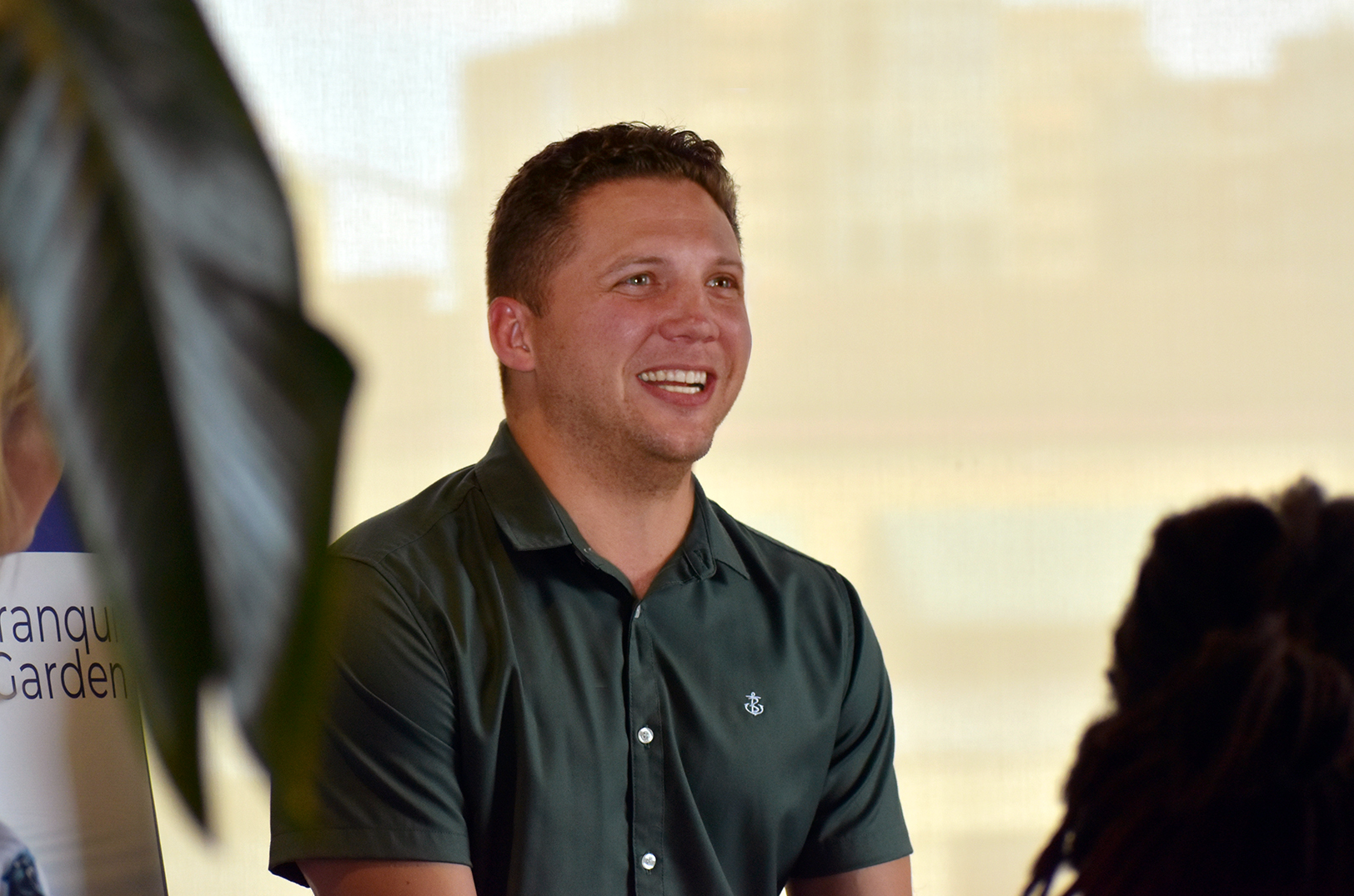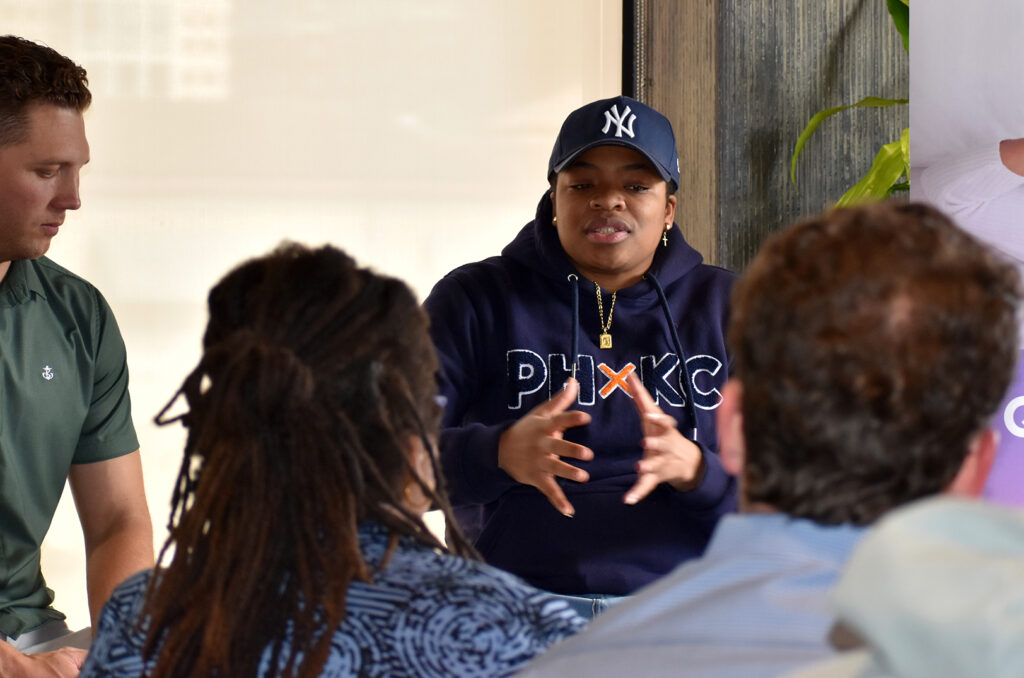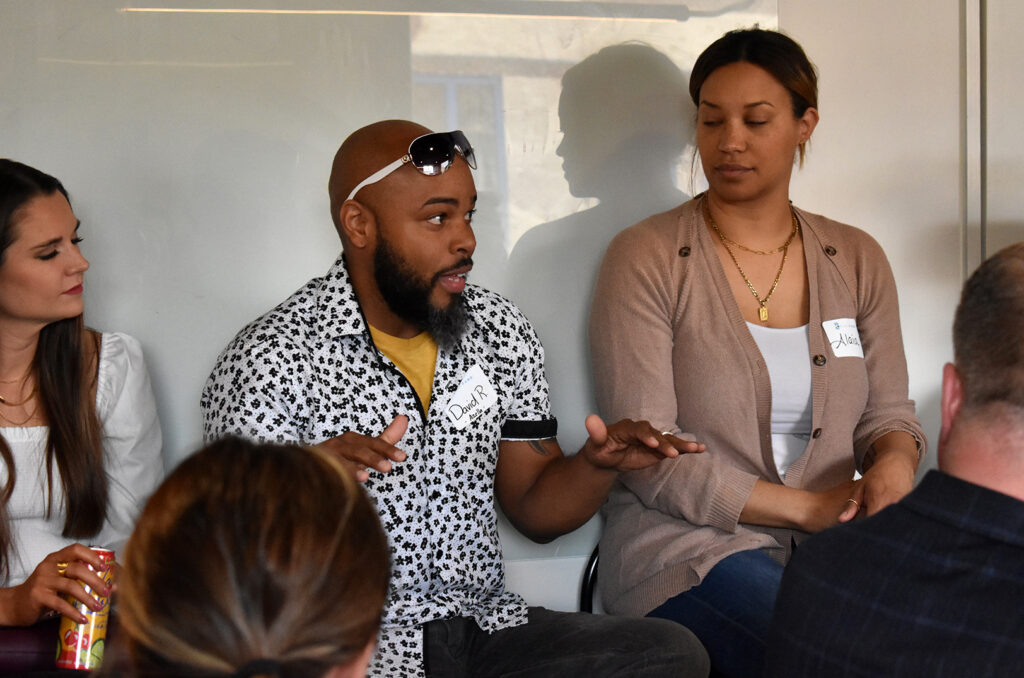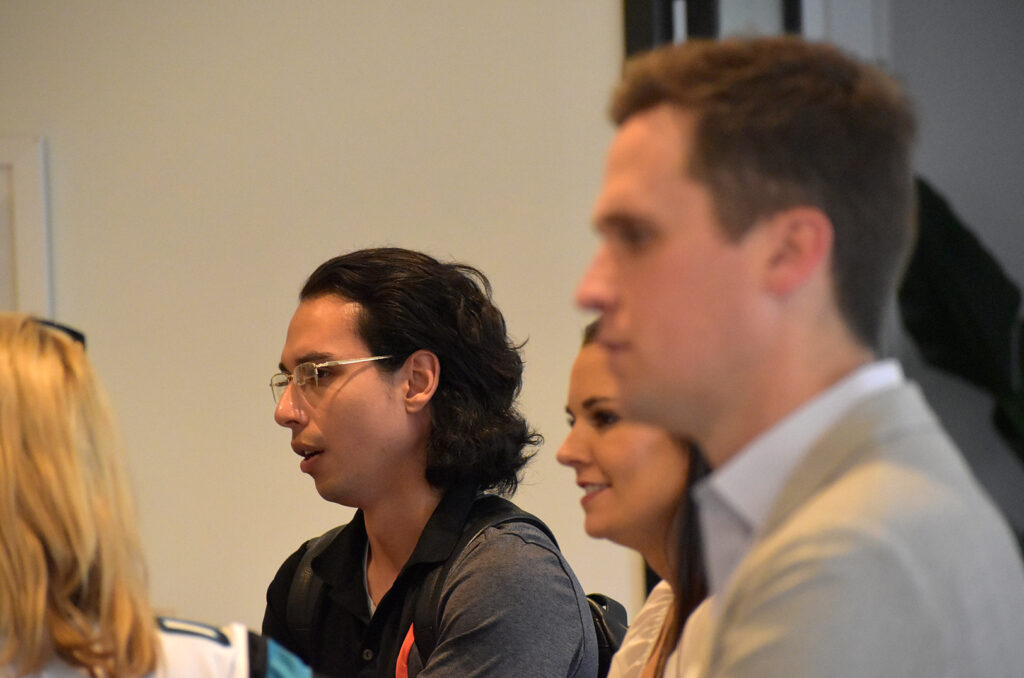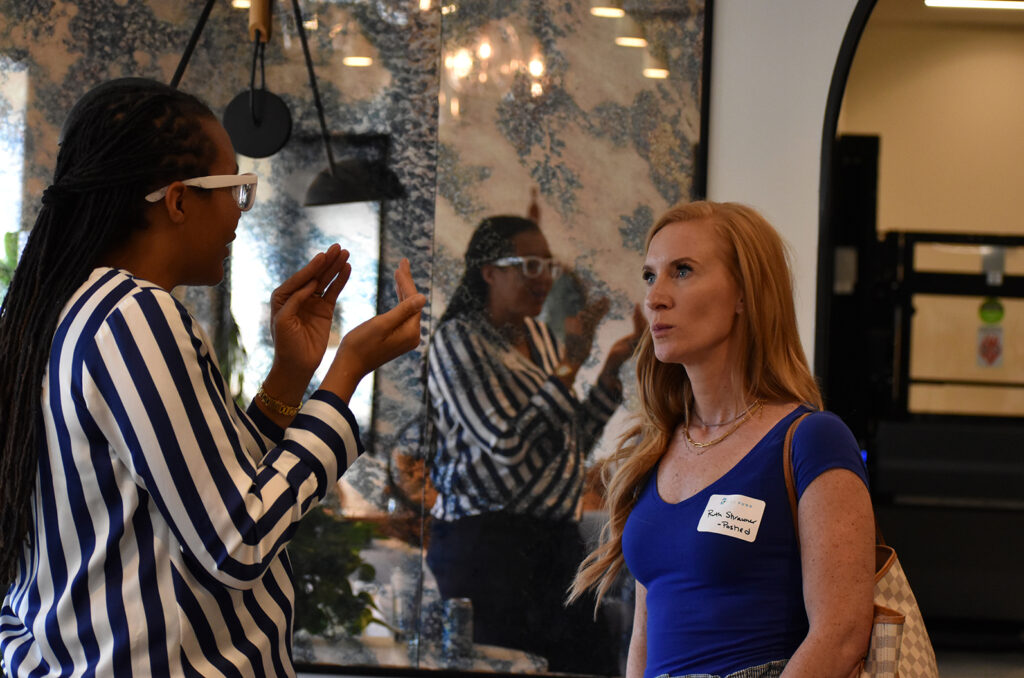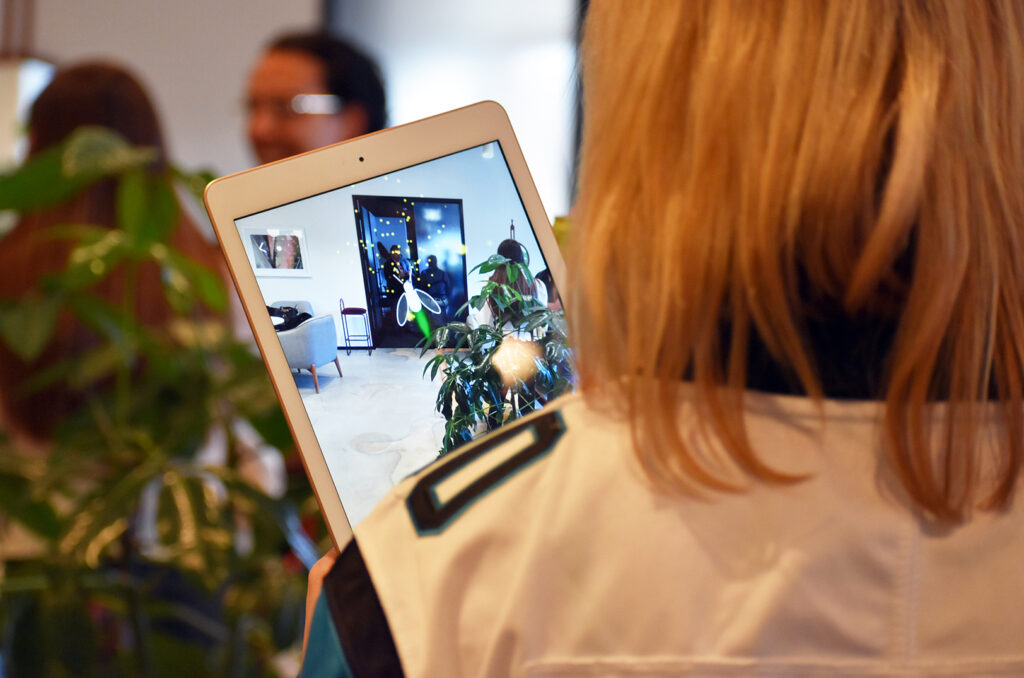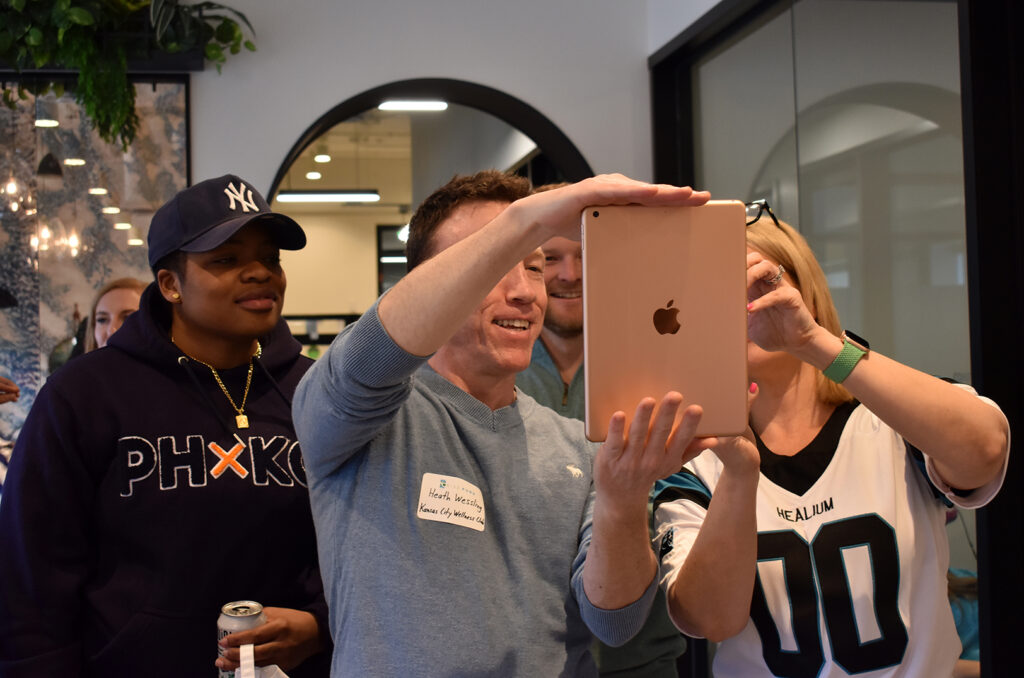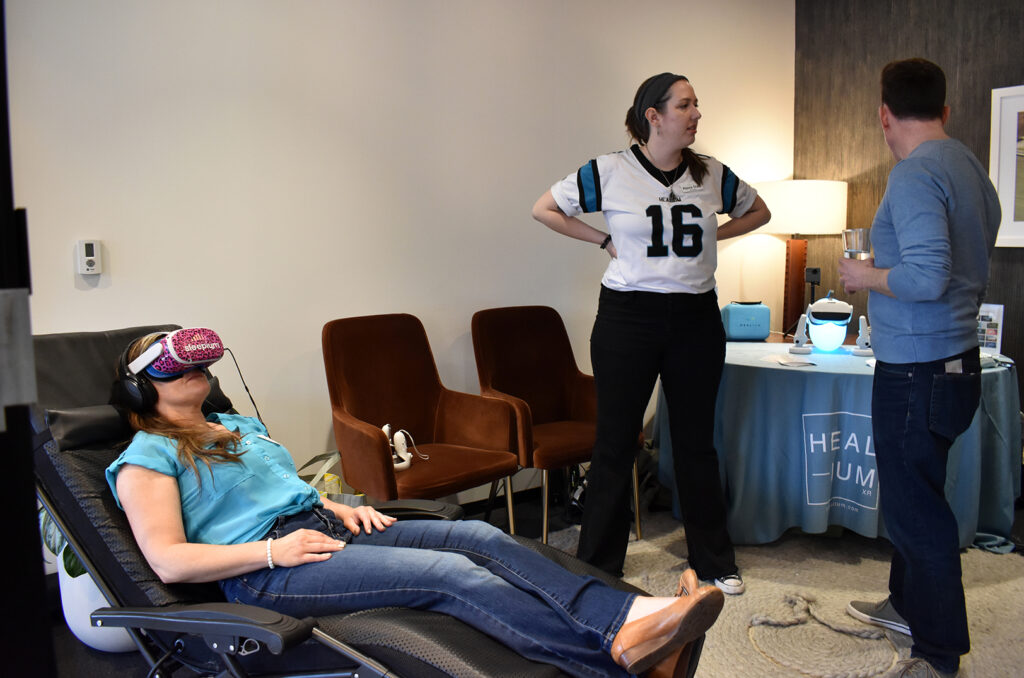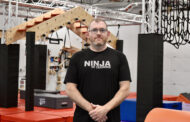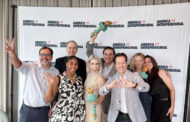Even after building a startup into one of Kansas City’s biggest exit success stories, the entrepreneurs and leaders behind BacklotCars don’t sit around to talk about their grand achievements when they reunite, said Anders Ericson; they reminisce about how the tech company nearly went out of business along the way.
“Everyone always wants to ask you about all the wins, but when I get together with the OG Backlot crew, we don’t talk about the successes at all; we talk about the times that were tough,” said Ericson, who as vice president of sales helped guide the startup to a $425 million exit in 2020.
“[We talk about] the times when we were down to pennies in the bank account, or the time when we were in San Francisco trying to raise money, paying ourselves in ramen,” he continued.
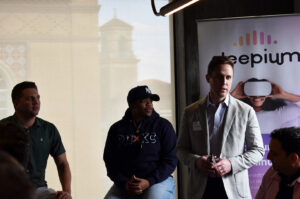
Liam Reilly, KCRise Fund, welcomes the audience at the firm’s Fund’s Founder Forum at Industrious; photo by Channa Steinmetz, Startland News
Ericson, now co-founder and CEO of Whipz, spoke Monday during a panel discussion moderated by Sarah Hill, founder and CEO of Healium, alongside serial entrepreneur Jannae Gammage, co-founder and CEO of Foresight. The startup leaders shared personal struggles and strategies for maintaining mental well-being while growing a startup.
“There were four instances where it was like, ‘Oh, wow, I don’t know if we’re going to make it,’” Ericson recalled. “Every time you figure things out, get some breaks that go your way and you get over that hump. . . It takes a lot of hard work, and then you need a little bit of luck, too.”
Organized by KCRise Fund Monday afternoon at Industrious on the Country Club Plaza, the Founder Forum event offered tips to fellow entrepreneurs on how to combat burnout, prioritize self-care, and handle rejection.
“Oftentimes, people only hear about entrepreneurs’ successes and big wins, but there’s more to the founder journey,” said Liam Reilly, principal at KCRise Fund. “Although we [at the venture capital firm] aren’t startup founders ourselves, we saw an opportunity to leverage our centralized position within the ecosystem to bring founders together to talk about those things that often don’t get discussed openly enough.”
BacklotCars, Healium and Whipz — one of Startland News’ Kansas City Startups to Watch in 2023 — are all among KCRise Fund’s portfolio of investments. Healium recently announced a $3.6 million seed round.
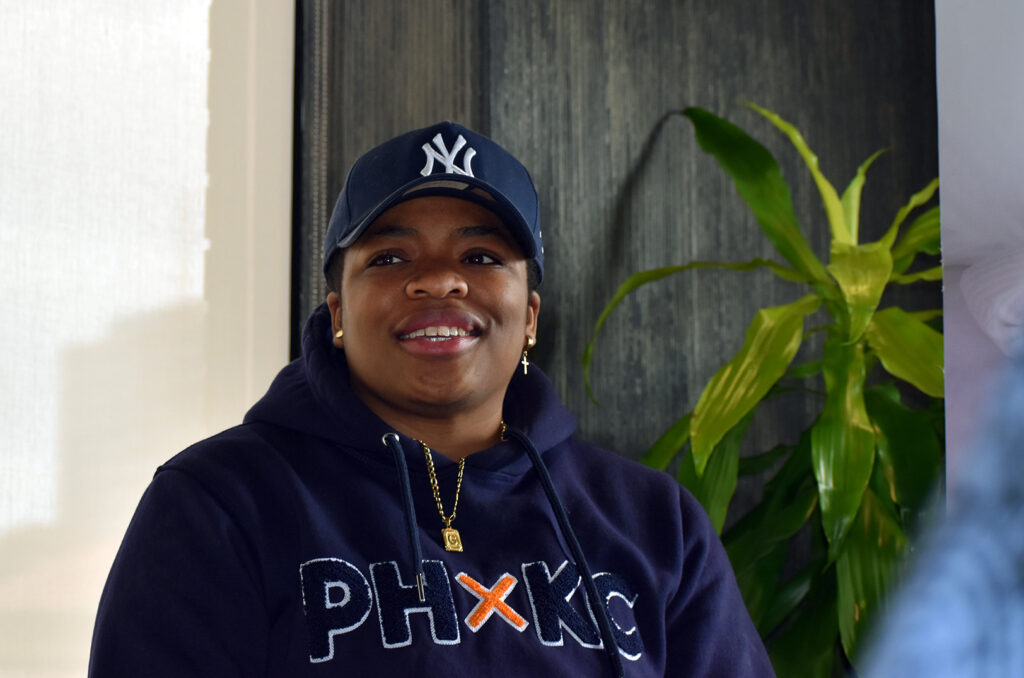
Jannae Gammage, Foresight, speaks during KCRise Fund’s Founder Forum at Industrious; photo by Nikki Overfelt Chifalu, Startland News
Foresight’s Gammage acknowledged that she had to overcome a mindset of believing that stress, sleep exhaustion, and burnout simply came with the territory, she said, adding that she draws upon her collegiate athletic and military background for perspective.
“I would never show up to a marathon without training first,” Gammage said. “I’ve been a collegiate athlete; I’ve been in the military; I’ve been in war. I just always kind of level set myself. It’s like, ‘There’s no way this is harder than being shot at.’”
Gammage referenced her neurodivergence and team building skills as the “two superpowers” that carry her through the difficult times.
“I am the Phil Jackson of building a team,” Gammage said, alluding to the Hall of Fame basketball coach. “I always surround myself with people who can fill those gaps.”
Check out a photo gallery from the event — which featured a demo with Healium’s virtual reality wearables for sleep and sports meditation, as well as calm and focus — then keep reading.
Don’t sleep on mental health priorities
Prioritizing mental health is key for a founder’s survival, Ericson and Gammage emphasized.
Ericson doesn’t check his phone when he wakes up, he said, instead beginning his day with a workout and a daily to-do list that goes from highest-level importance to lowest priority.
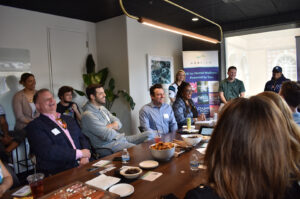
Founders and other attendees share a laugh during KCRise Fund’s Founder Forum at Industrious; photo by Channa Steinmetz, Startland News
“If you look at your phone, you will immediately go into react mode, and you will be in react mode the whole day,” Ericson said. “You probably have 50 Slack messages that built up overnight; you’ve got all the emails that have come in from various sources. If you spend your hour-and-a-half or two hours right when you wake up doing all that, you will be in react mode all day.”
Gammage takes a different approach, she said, focusing on staying relaxed in the morning and allowing her body to wake up naturally.
“I need to wake up when my body says wake up,” Gammage said. “When I do wake up — usually around 7 or 7:30 every morning — I feel rested.”
That emphasis on quality of sleep was something Gammage said she had to turn from a weakness into a strength, noting that priority shift has improved her productivity.
“One of my weaknesses was not prioritizing sleep,” she said. “I really didn’t realize how unproductive I was being by just ‘being productive’ for 13 hours a day and not getting good sleep.”
Gammage also encouraged founders to consciously select their working environment. Ericson advised them to lean on mentors for support.
“If you’ve got problems or things stressing you out, go talk to mentors, fellow entrepreneurs, investors or potential investors, because the problem you have probably is not a unique problem,” Ericson said. “It’s probably not something that nobody has ever had before, so lean on those people. They can certainly help you and guide you.”
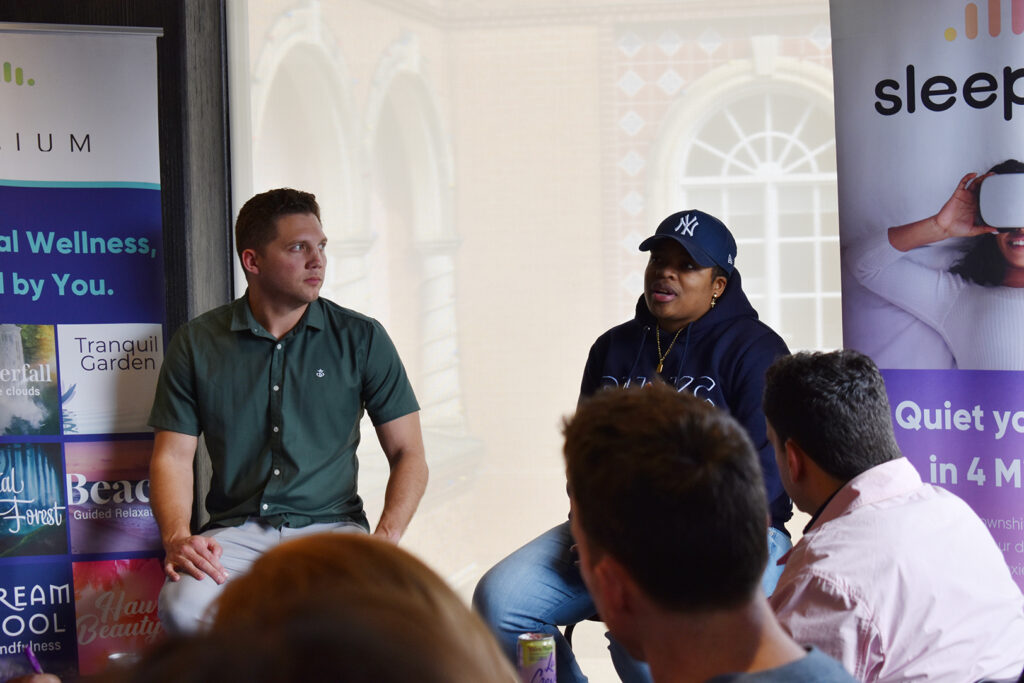
Jannae Gammage, Foresight, right, speaks alongside Anders Ericson, Whipz, during KCRise Fund’s Founder Forum at Industrious; photo by Channa Steinmetz, Startland News
Rejecting the ‘nos’ that don’t add up
The featured founders concluded Monday’s panel discussion by offering advice on how to embrace and overcome rejection, specifically from potential investors.
Ericson noted he was used to hearing rejection, especially from customers, because of his sales background, but acknowledged that pushback from investors tends to hit differently.
“Investors won’t say, ‘That’s a stupid idea,’” Ericson said. “They’ll say, ‘You’re too early for us,’ or ‘We’ll circle back,’ or ‘Call us in six months.’ Then you look up the company and see it’s a seed-stage fund and we’re too early for you when we’re doing a seed stage? It doesn’t really add up.”
Nevertheless, Ericson said, he channels the rejections into motivation rather than letting them bother him, even keeping a list of investors who turned him down.
“What I do is I keep a list of all the investors that I felt were perfect fits for us, and they told us, ‘No,’” he continued. “That’s actually what motivates me — it’s not the ‘yeses,’ it’s the ‘nos,’ because I want to go prove those people wrong.”
Gammage admitted she also keeps a list of investors who rejected her as motivation, saying she now chooses to be more selective on which investors she seeks out, as opposed to playing “the numbers game.”
“When it came to rejection, I knew the reason why I was talking to this investor, or this person, and it was really important feedback,” Gammage said. “I actually believe we could secure a partnership, or I actually believe we could get investment. So when I didn’t get that, I didn’t really see it as rejection. It was just a refinement period.”
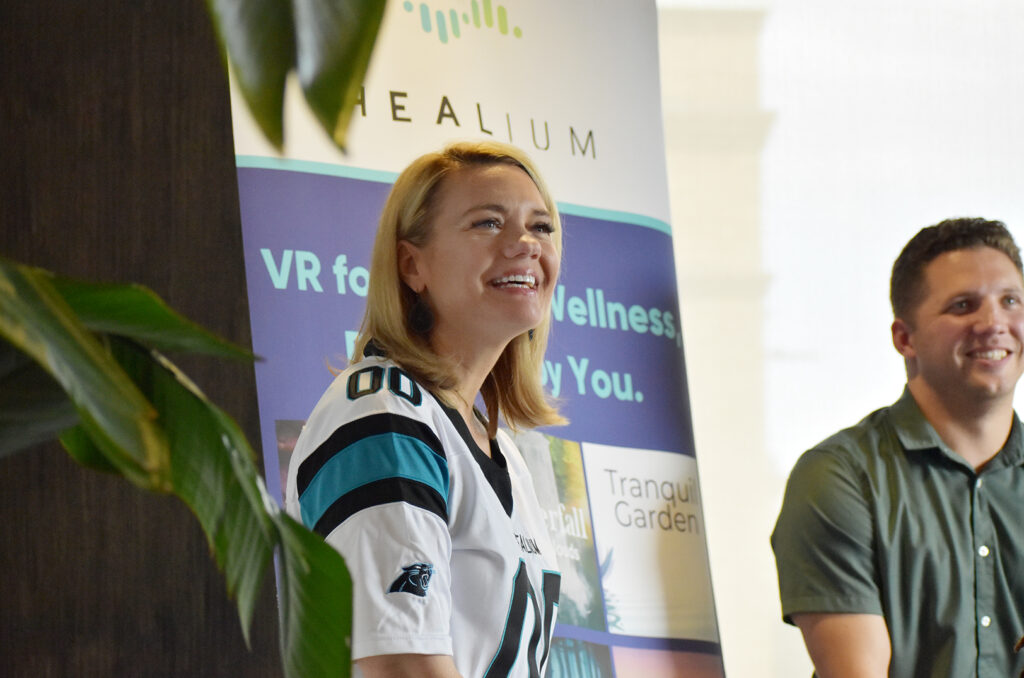
Sarah Hill, Healium, left, speaks alongside Anders Ericson, Whipz, during KCRise Fund’s Founder Forum at Industrious; photo by Nikki Overfelt Chifalu, Startland News
Hill added that her team at Healium “celebrates” their rejections, in an effort to normalize something that is an inevitable part of entrepreneurship.
Monday’s event marked the first of more Founder Forums to come, according to Reilly, who said that KCRise Fund plans to keep facilitating discussion of important issues like mental health and well-being.
“Our goal is to have more founder-focused events in the future that offer key content and opportunities to meet other founders,” Reilly said, “with the hope that these events further advance our local entrepreneurial ecosystem.”



